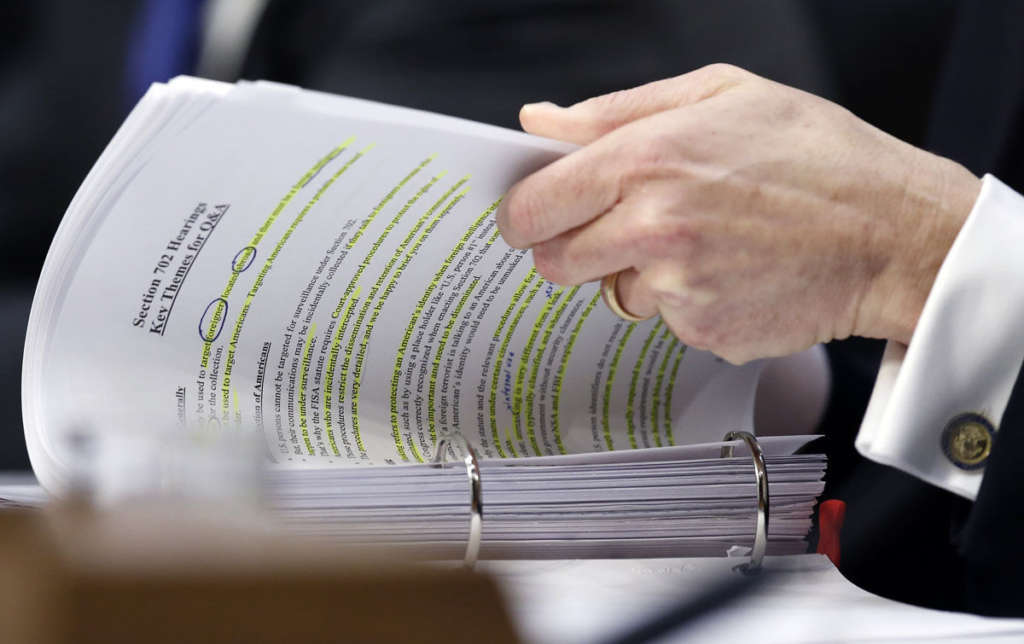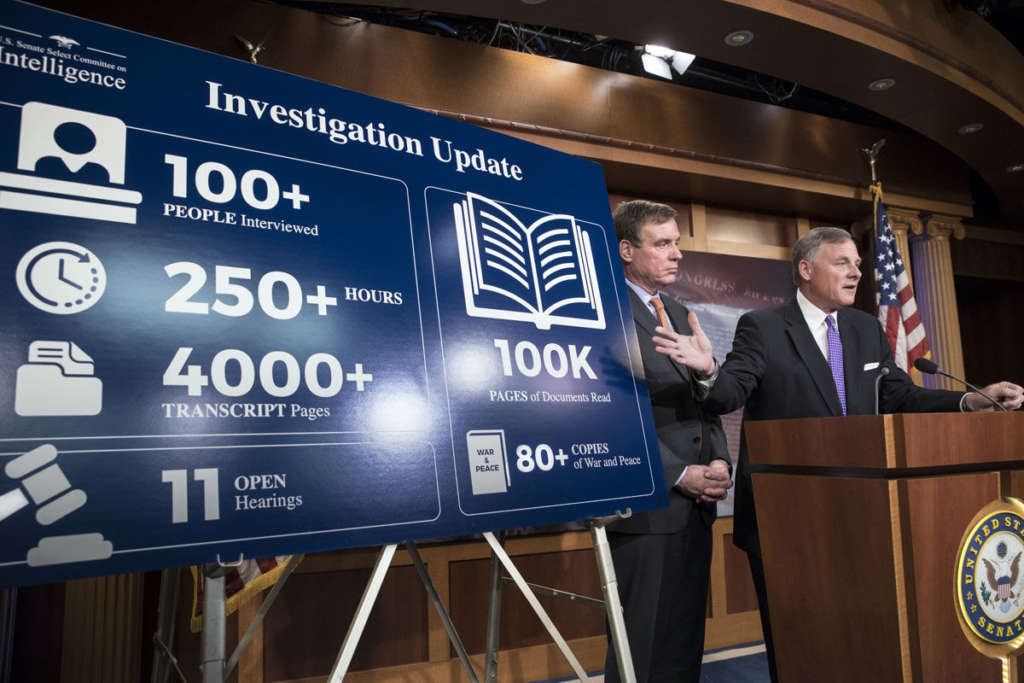Editor’s note: This article was corrected to clarify that Deputy Attorney General Rod Rosenstein’s reference to FISA applications did not include section 702 matters.
WASHINGTON — Besieged by nearly daily revelations about Russian meddling in American politics, North Korea’s constant threats to incinerate the country with nuclear weapons, an opioid epidemic and rampant leaks from within the government, the Deputy Attorney General at the Department of Justice said terrorism is the country’s number one challenge.
“The most pressing national security concern for America since 9/11 has been the threat of international terrorism on our soil,” Deputy Attorney General Rod Rosenstein told WTOP in an exclusive interview.
Because the problem is so pernicious, Rosenstein said, “I typically spend about a half-hour every day meeting with officials from our national security division and reviewing proposed Foreign Intelligence Surveillance Act applications.”

An important part of the Foreign Intelligence Surveillance Act — or FISA — called Section 702. It is hailed as a proven anti-terror tool that has foiled numerous terror plots, including the 2009 conspiracy to bomb the New York City subway. It was used to track communications between Afghan-American Najibullah Zazi and a bombmaker in Pakistan.
In 2016, according to NSA in a declassified ODNI Transparency Report, more than 106,000 individuals were targeted under the provisions of sections 702
Rosenstein has only been on the job since April, but he described “the kind of dangers we face and the work that the intelligence community is doing on a daily basis” as “eye-opening.”
FISA’s Section 702 authorizes intelligence officials to obtain information from internet service providers and telephone companies relating to terrorists and other suspects outside of the U.S. that may be communicating with persons inside the U.S.
Because of concern about threats to the U.S., recently retired deputy director at the National Security Agency to write an urgent letter to Congress, recommending the reauthorization of Section 702 of FISA, which expires in December.

Rick Ledgett and 15 other top former intelligence community officials, who for years wrestled with what Rosenstein is now faced with, signed the letter because of worries about what lay on the horizon.
“The United States faces a dangerous, unstable world. Real and potential threats to our nation and its allies exist all around us — from North Korea and Iran, to Russia and China, to terrorism and destructive cyberattacks,” read the opening line of the letter sent to 12 of the top leaders in the Senate and House of Representatives.
“We thought it was really important to get our views out there in front of the Congress and the American people because of the criticality of the Foreign Intelligence Surveillance Act Section 702 to identifying threats to the country and equipping law enforcement, the military and policymakers with the information they need in order to interdict those threats,” Ledgett said.
Perhaps a more pressing reason was the continuing fallout from the massive trove of leaks former NSA contractor Edward Snowden poured into the public domain in 2013, which Ledgett said has directly benefited terrorists.
Ledgett told WTOP in April 2016, while still in his position at the NSA, the U.S. intelligence community tracked through its sources, “close to 1,000 legitimate foreign intelligence targets, including terrorists,” although some of them have changed their communications operations to avoid detection.
He said in the 2016 interview, and repeated it this week on Monday in a subsequent interview with WTOP, those terrorists included “at least one group involved in an operational plot to attack the U.S.”
The name of the group was never revealed, nor the status or outcome of its efforts.
The confluence of terrorism and cyber-vulnerabilities
Tangible terror attacks are not the only concern for Rosenstein.
“We view the challenge more broadly than just physical terrorist acts in the United States because there is an ongoing foreign threat of cyberactivity, intrusions, disruption and the theft of data,” he said.
While terror groups such as ISIS have limited cyber-capabilities, current and former U.S. intelligence officials have confirmed that if ISIS wanted to use cyber as a weapon, it could.
Rosenstein said, “As the world becomes more and more interconnected electronically, and we become more and more dependent upon the internet and computers to maintain our data, we become more and more vulnerable.”
Last month, on Sept. 22, FireEye Cyber Security Company confirmed to WTOP that it “detected and stopped spear phishing emails sent to U.S. electric companies by known cyberthreat actors likely affiliated with the North Korean government.”
FireEye’s chief intelligence strategist Christopher Porter said, “The activity was early-stage reconnaissance and not necessarily indicative of an imminent, disruptive cyberattack that might take months to prepare if it went undetected.”
And earlier, another vulnerability was highlighted in the months leading up to and after the 2016 U.S. presidential election. The extensive hacking of state and local election databases, and email accounts belonging to Democratic Party officials believed to have been conducted by Russian-linked operatives, triggered grave concern in the U.S. national security community.

It was addressed in a report from the Office of the Director of National Intelligence, released this year on Jan. 6, titled, “Assessing Russian Activities and Intentions in Recent US Elections.”
“Russia’s effort to influence the 2016 U.S. presidential election represented a significant escalation in directness, level of activity, and scope of effort compared to previous operations aimed at U.S. elections,” the report stated.
“From my perspective in the Department of Justice, we have a responsibility to protect the integrity of our elections and to pursue appropriate criminal cases,” Rosenstein added.
“So, if anybody interferes with our elections, no matter who it may be, it’s appropriate for us to take action, and when there are criminal prosecutions that are justified, we need to pursue criminal investigations.”
Rosenstein is supervising the well-publicized special counsel investigation into Russian meddling in the 2016 election. Because it’s an ongoing investigation, he declined to discuss the probe during the interview with WTOP.
But he pointed out, “Cyberthreats aren’t just about elections. Cyberthreats are about commercial activity, national security matters, electric grids and computer networks.”
Section 702 of the 2008 Foreign Intelligence Surveillance Amendments Act (FAA) will expire on December 31, 2017.





